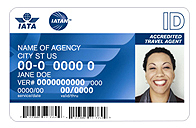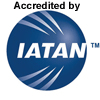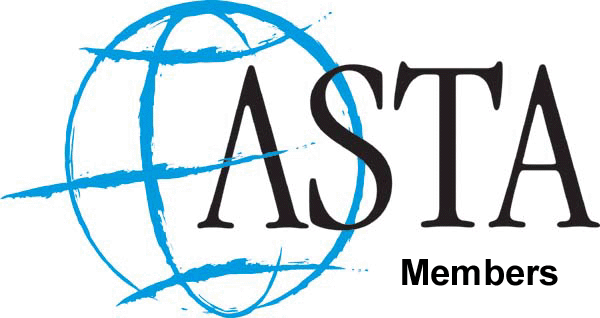Ah…the great pyramid scheme! Travel seems to be one of those industries that easily lends itself to the common pyramid scheme…promises of “free” travel perks or greatly reduced rates for the prospective buyer of a "travel-advisor-in-a-box kit." They entice those who think there are still such things as a “free lunch.” Indeed, they soon find out that there exists no free lunch, often after high-pressure sales pitches and hundreds or even thousands of dollars for "memberships" that promise one can be an "instant" travel "agent" and enjoy those free perks (what free perks?!!) legitimate advisors all receive! For most, the only thing they receive is a new hole in their wallet while a select few at the top of the pyramid reap the rewards. Unfortunately, travel is an easy pawn in this age old game... With the many changes in the travel industry that have occurred in recent years, the opportunities for “get rich schemes” and "easy money" have grown tremendously. With it have come many people, who for whatever reason, have hung out a “travel advisor” sign with little or absolutely no training, credibility – or accountability. Companies that encourage these people have built their operations by selling “memberships” whereby the buyer becomes a "pseudo-agent" – sometimes called an RTA or “Referral Travel Agent.” These so-called travel "agents" simply “refer” their friends, family, themselves and others to websites where the potential traveler makes his own arrangements, often with no one to fall back on if difficulty arises! The “referral agent” then gets a cut of the commission involved with the sale of such travel. Quite often, the companies operating the schemes promise huge earnings potential...The last I knew, it took very little in the way of expertise to “refer” a friend to someone (or somewhere) else. In fact I do it all the time – with my plumber and electrician and painter, for example. Does that make me a reputable plumber or reliable electrician? I think not! These referral "agents" actually can make more money by referring friends and others to the company operating the pyramid scheme and encouraging them to become RTAs, often by purchasing websites, rather than actually selling any travel. Most of these websites generate little if any business at all! In fact, many of these companies also supply worthless “ID cards” identifying the holder as a real travel "agent." Most all travel suppliers and wholesalers in the industry do not fall for this fake ID scheme. In fact, many suppliers now refuse to deal with these pyramid-operating "businesses" and their "agents." These operations are often referred to as ID "card mills." The problem is that the travel industry as a whole is still having a tough time in selecting one single standard of agent identification – and sticking with it. Actually, there always has been one, albeit airline-oriented, organization – The International Airlines Travel Agent Network – or IATAN, that has been around for many years and is still considered the standard for professional travel advisor identification. Its ID card and travel agency certification programs are probably the most globally-recognized and it is not easy to obtain and renew their ID card or to obtain travel agency certification - the requirements are quite strict in fact. To add to the confusion, there is the relatively easily-obtained CLIA (Cruise Lines International Association) ID card that many cruise-selling agents carry, including many pseudo-agents, unfortunately. CLIA, recognizing that they had a serious problem, raised the bar on who can qualify for their ID card and since 2009, most of their card holders and all new applicants need to be enrolled in their excellent cruise counselor certification program in order to qualify for their ID. It has been step in the right direction for CLIA – which is primarily a marketing organization for their member cruise lines. A few other industry organizations are also considering adding another ID card or two to the mix, which has only caused further confusion... So... with all of this confusion, what should the consumer look for in an advisor or travel agency? To begin with, the agency should, at the VERY LEAST, be covered by a significant Errors & Omissions (E&O) insurance policy as well as standard business insurance. These are basic business requirements of most agency certification organizations such as IATAN and just good business sense! The advisor or agency should be a member in good standing of ASTA – the American Society of Travel Advisors. Look for this reference on the agency's website and/or marketing materials, business cards, letterhead, etc. Membership in the local Chamber of Commerce is another good sign that the agency you’d like to deal with is a real business! Membership in one or more of these professional organizations indicates that the advisor/agency is interested in keeping informed and up to date with the constantly changing travel industry. Of course, a current IATAN ID card is usually fairly good proof of a Travel Advisors credibility, but beware of false look-alikes, as there are a few out there (see above - the legitimate IATAN ID card). Travel advisors who are serious about their career never stop learning and exhibit that by their professional credentials. There are a number of certifications that are very meaningful. One of the most respected, since the 1960s, is the Certified Travel Counselor designation bestowed by the Travel Institute in Wellesley, Mass. The CTC certification is given only after extensive examinations and real world experience and is an excellent indication that you are dealing with a true professional! A Master Cruise Counselor designation (MCC) indicates a true cruise selling professional, again with extensive sailing, ship inspection, classroom and related experience. Another indication of a professional, certified and legitimate travel advisor is that given by the Travel Professionals Network (TPN). This non-profit organization was founded to try to combat the "pseudo-agent" problem by issuing three levels of designation to legitimate travel agents, depending upon their sales volume, years in the business, earned certifications and experience. The highest of these is the DTP, or Distinguished Travel Professional. A DTP advisor has been in the business for many years and should be quite well-equipped to guide you. All TPN certified advisors agree to follow a strict code of ethics, as do ASTA member advisors and agencies... If you are looking to travel to a specific area for the first time, look for an advisor who has knowledge and experience or ideally is a specialist in that destination. If you encounter a travel advisor who hands you a card and simply refers you to some nifty-looking website to search and book, ask yourself – is this person going to back you up in an emergency situation? Does he or she really know what they are doing – or selling? In fact, you may know more than they do! Many advisors will have a specific "DS" or Destination Specialist credential, issued by the Travel Institute. These folks are true experts in their chosen specialty...In fact, many travel agents are now moving away from the "agent" designation toward that of travel "advisor" (in fact, ASTA has even changed its name to reflect "Advisor" rather than "Agents"). These are the folks you should seek out for their knowledge and expertise - and these are the folks who deserve your business! Be prepared to possibly pay a fee for their expertise, as you would any doctor or other professional. Most travel agencies have their own website nowadays. Have a good look at it! It should be neat and organized and offer details about the agency, who owns it, their address, phone, email and qualifications/affiliations - NOT just a bunch of "specials." Look for their credentials and industry memberships – and check them out! If you find just a telephone number, a PO Box or only an email address and not much else, beware! Who will you call if you have a problem prior to departure or while en route? Is there an emergency number you can use to contact them? Any website can display legitimate looking icons and logos - verify them! It's easy enough to do these days...Remember - "Without a Travel Advisor, You're on Your Own!!" The good news is that a number of these pyramid-scheme on-line “travel” companies have been or are now under indictment or investigation by many state attorneys general, including California, Illinois and Connecticut. It is the hope of the legitimate travel agency community that these phony operations are finally shut down for good. Legitimate travel advisors welcome legitimate competition! In summary, why trust your well-deserved vacation of a lifetime to a non - professional, "pseudo-agent" who really has no responsibility for you and your trip? Please give it some serious thought... Thanks for reading! - Dennis Hubbs, CTC/MCC/DTP/DSD&D Travel Services, LLC - 16 Brooke Street - Bloomfield, CT 06002 (860) 243-9458 (800) 613-0282 |





